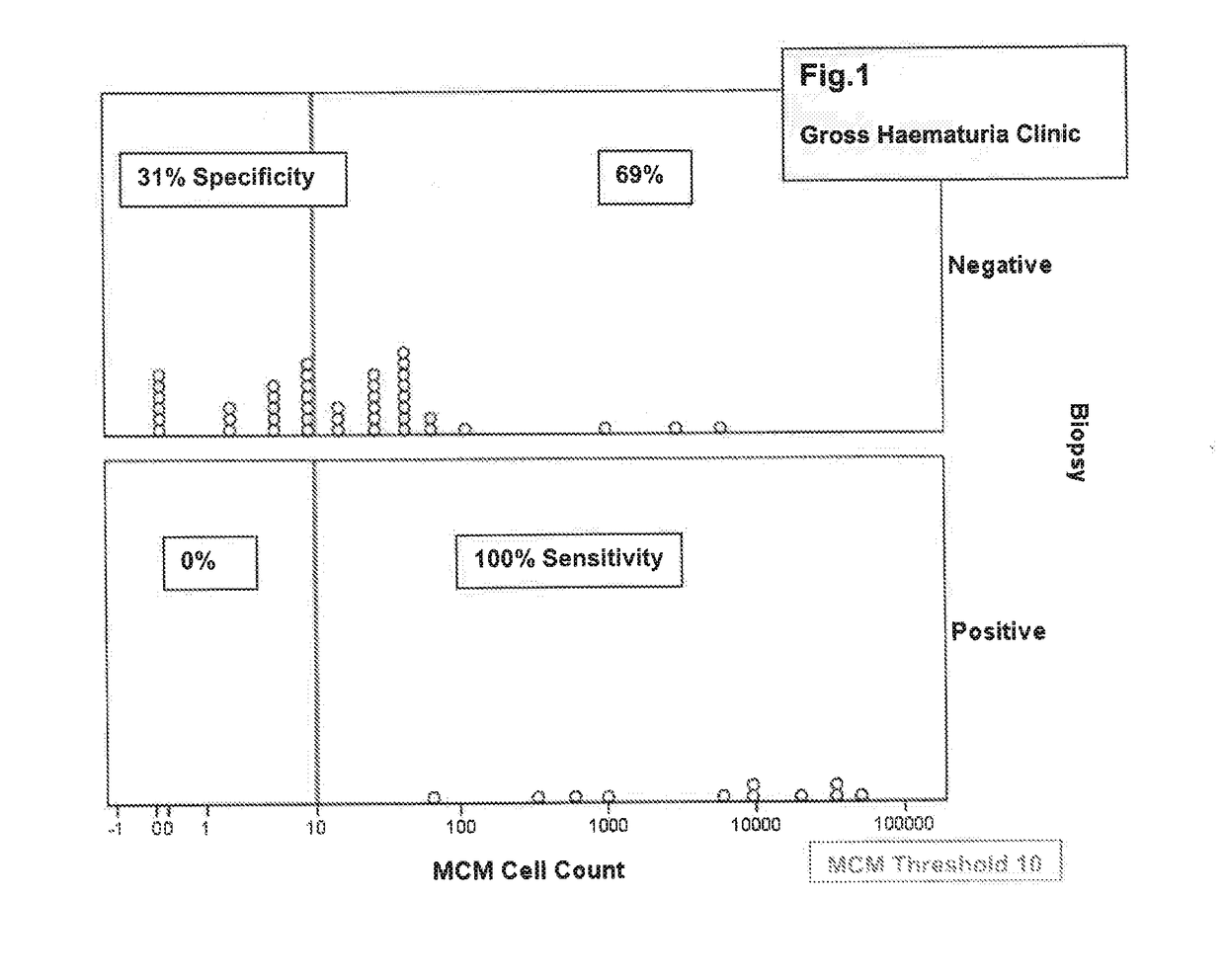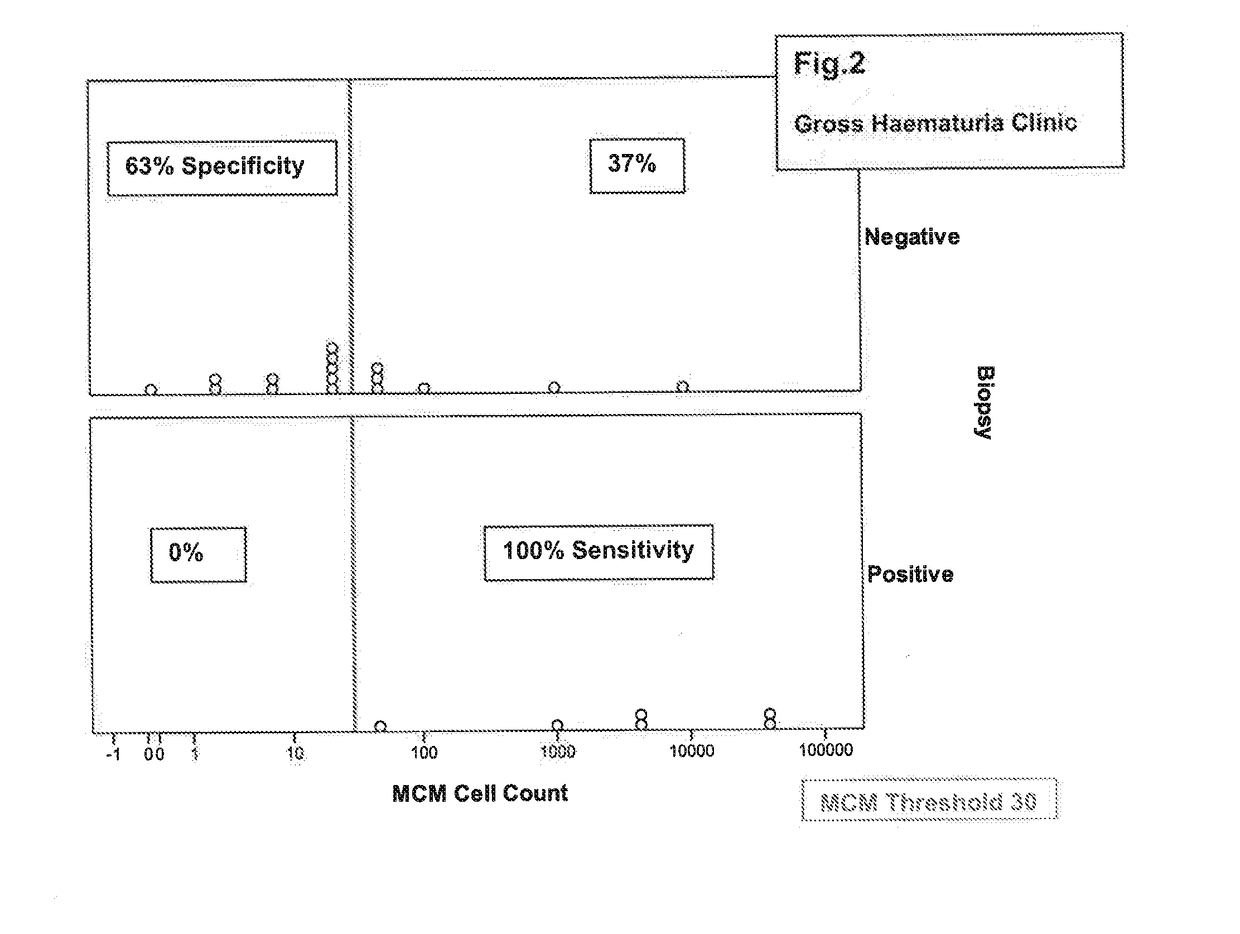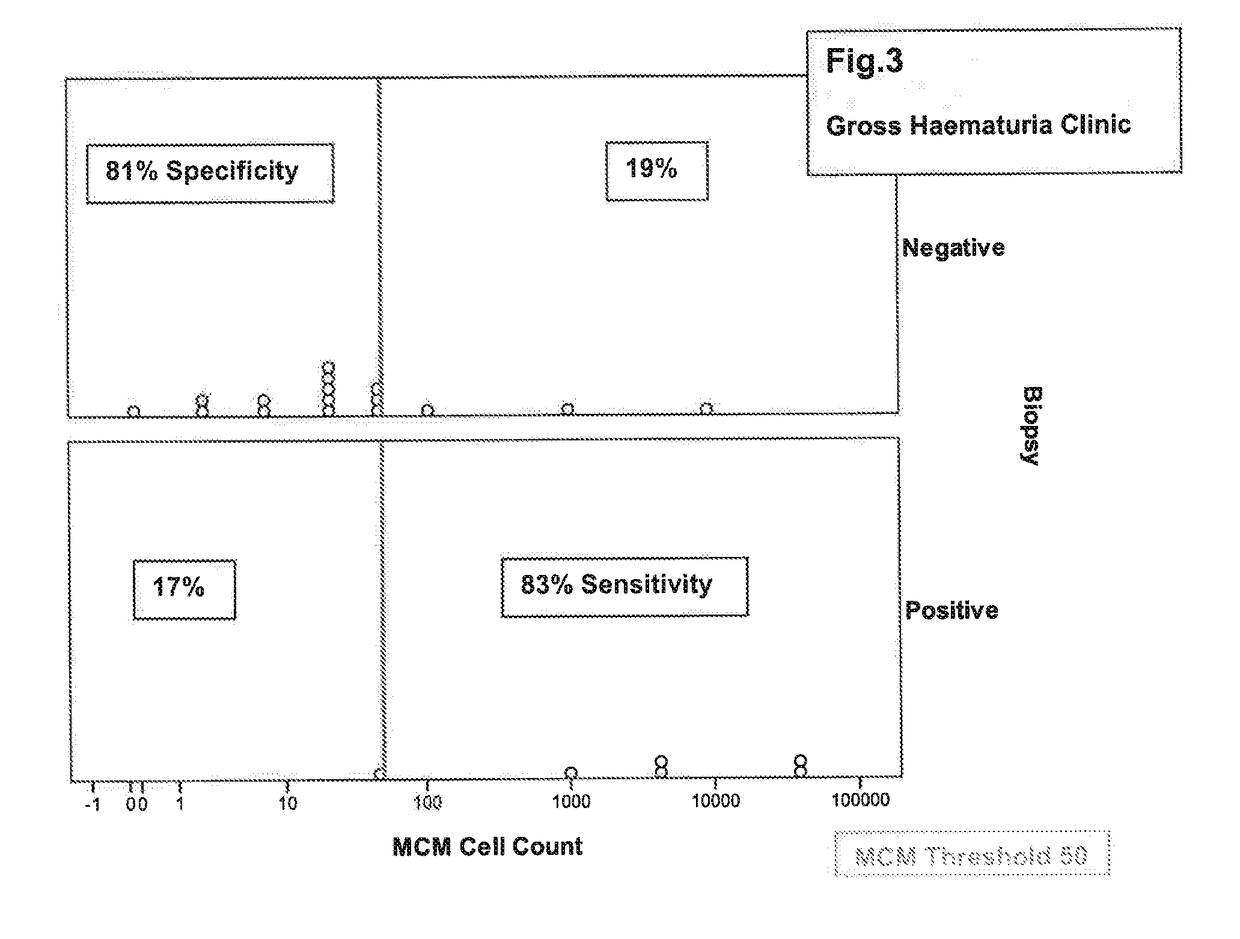Diagnostic Method
a technology of diagnosis and treatment method, applied in the field of diagnosis method of bladder cancer, can solve the problems of complicated clinical management of patients with transitional cell carcinoma
- Summary
- Abstract
- Description
- Claims
- Application Information
AI Technical Summary
Benefits of technology
Problems solved by technology
Method used
Image
Examples
example 1
[0107]Materials and Methods
[0108]In the present study, conducted at Addenbrookes Hospital, Cambridge, a total of 246 patients who routinely attended the surgical outpatient department (Department of Urology, Addenbrookes Hospital, Cambridge) were investigated for the possible presence or recurrence of bladder cancer. Earlier work had indicated that the biology of these patients, all of whom had Transitional Cell Carcinoma (TCC) could be conveniently divided into two main groups—[0109]1. Those who presented for the first time to the clinic with Gross Haematuria (GH patients), i.e. frank evidence of blood in the urine, for urgent review of the possibility of bladder cancer, and[0110]2. Those patients who returned to the clinic having had a biopsy positive diagnosis of bladder cancer at some point in the past, and had had treatment depending on the nature and aggressiveness of the tumour and were now returning for cystoscopic review (CS patients).
[0111]These patients were followed up h...
example 2
[0178]Materials and Methods
[0179]In the present study, conducted at four different sites across the UK, namely Bradford Royal Infirmary, Addenbrookes Hospital, Cambridge, Homerton Hospital, London, and the Western General Hospital, Edinburgh, a total of 107 patients who routinely attended the surgical outpatient Department of Urology at each hospital, were investigated for the possible presence or recurrence of bladder cancer. Earlier work had indicated that the biology of these patients, all of whom were investigated for Transitional Cell Carcinoma (TCC) or were returning for cystoscopic surveillance of biopsy positive TCC, could be conveniently divided into two main groups—[0180]1. Those who presented for the first time to the clinic with Gross Haematuria (GH patients), i.e. frank evidence of blood in the urine, for urgent review of the possibility of bladder cancer, and included in this group those patients who presented for the first time with Microscopic Haematuria, i.e. bioche...
PUM
| Property | Measurement | Unit |
|---|---|---|
| pH | aaaaa | aaaaa |
| MCM threshold | aaaaa | aaaaa |
| threshold | aaaaa | aaaaa |
Abstract
Description
Claims
Application Information
 Login to View More
Login to View More - R&D
- Intellectual Property
- Life Sciences
- Materials
- Tech Scout
- Unparalleled Data Quality
- Higher Quality Content
- 60% Fewer Hallucinations
Browse by: Latest US Patents, China's latest patents, Technical Efficacy Thesaurus, Application Domain, Technology Topic, Popular Technical Reports.
© 2025 PatSnap. All rights reserved.Legal|Privacy policy|Modern Slavery Act Transparency Statement|Sitemap|About US| Contact US: help@patsnap.com



